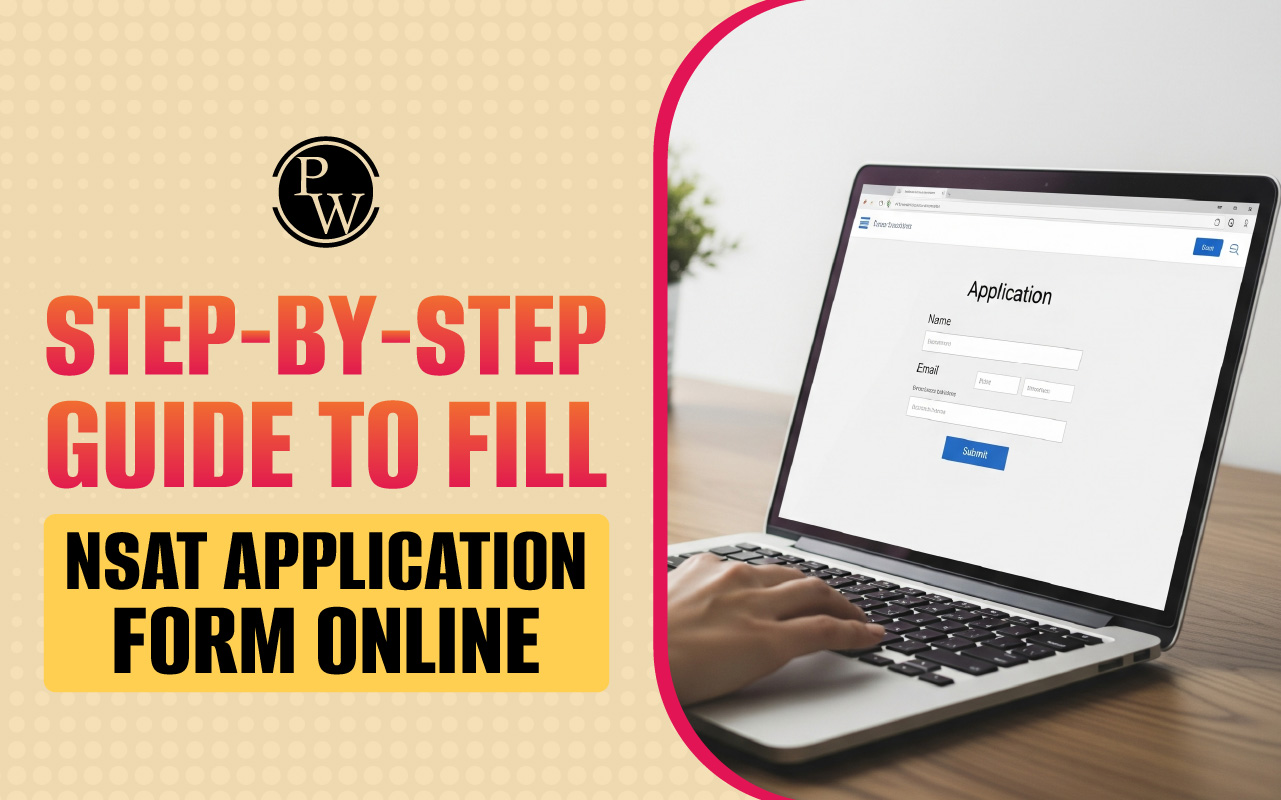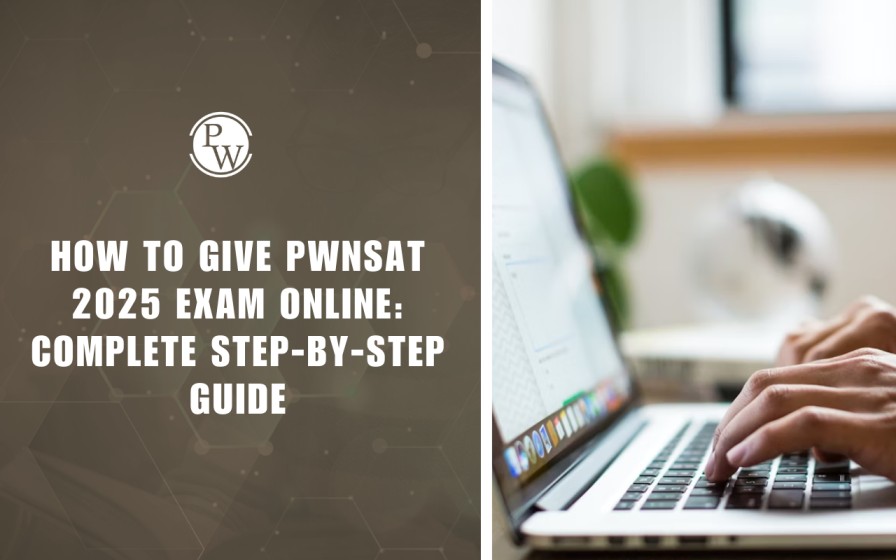
PW NSAT 2025 (Physics Wallah National Scholarship-cum-Admission Test) is a national-level scholarship exam for students of Class 5 to 12 and droppers. The exam is being conducted in two phases — Phase 1 and Phase 2 starting from 1 December 2025 giving students another opportunity to win up to 100% scholarships for PW Vidyapeeth and Pathshala courses.
In this article, you will find the complete NSAT 2025 test pattern, latest syllabus for all classes and streams (School, JEE, NEET), marking scheme, and subject-wise topics to prepare effectively for both Phase 1 and Phase 2. This page covers all the important details so that students can avoid confusion and prepare with clarity.
What Is NSAT 2025? (Now with Phase 2)
The PWNSAT is for Physics Wallah National Scholarship-cum-Admission Test is a national-level scholarship & admission exam conducted by Physics Wallah, for students from Classes 5–12 and droppers (JEE/NEET aspirants). It gives an opportunity to get up to 100% scholarship for PW courses. The 2025 cycle is being held in two phases: Phase 1 (already done) and Phase 2 (starting from 1 December 2025).
NSAT 2025 Test Pattern and Syllabus Overview
The NSAT 2025 exam format is designed to test students’ subjective knowledge because it is mainly based on the NCERT. Here’s a quick overview of NSAT 2025
| NSAT Overview | |
| Exam Name | PWNSAT 2025 (Physics Wallah National Scholarship cum Admission Test) |
| Conducting Body | Physics Wallah |
| Eligibility | Classes 5–12 students & droppers (JEE/NEET aspirants) |
| Exam Mode | Online & Offline |
| Scholarship Amount | Up to 100% on PW courses |
| Question Type | Multiple Choice Questions (MCQs) |
| Exam Duration | 60 minutes |
| Registration Fee | None |
| Benefits | Scholarships, access to study materials, experienced faculty, and Vidyapeeth center support |
NSAT Syllabus for Phase 1 and Phase 2
The NSAT 2025 (Physics Wallah National Scholarship cum Admission Test) Syllabus is designed based on the NCERT curriculum relevant to each class and stream, and thus, candidates can get an idea about the NSAT difficulty level. It primarily covers:
-
Classes 6 to 10: Physics, Chemistry, Biology, Mathematics, and Mental Ability.
-
Classes 11 and 12: Split into Medical stream (Physics, Chemistry, Botany, Zoology) and Engineering stream (Physics, Chemistry, Mathematics).
The syllabus aims to evaluate fundamental concepts aligned with competitive exam preparation for JEE and NEET.
| NSAT Syllabus | ||
| Class Range | Subjects Covered | Notes |
| Classes 6 to 9 | Physics, Chemistry, Biology, Mathematics, Mental Ability | NCERT-based topics for each class |
| Class 10 | Physics, Chemistry, Biology, Mathematics, Mental Ability | Preparation aligned with JEE/NEET foundation |
| Classes 11-12 Medical | Physics, Chemistry, Botany, Zoology | Focused on NEET syllabus |
| Classes 11-12 Engineering | Physics, Chemistry, Mathematics | Focused on JEE syllabus |
NSAT 2025 Exam Pattern
The NSAT Exam Format is designed as per the NCERT-based curriculum. Candidates need to check the NSAT 2025 Test Pattern and Syllabus before they start their NSAT preparation to qualify for the exam and get an opportunity to avail the benefits of NSAT. Here is the NSAT paper pattern tabulated below-
|
NSAT Paper Pattern |
|
| Exam Name | PWNSAT 2025 (Physics Wallah National Scholarship cum Admission Test) |
| Number of Questions | 40 Multiple Choice Questions (MCQs) |
| Total Marks | 160 (4 marks per question) |
| Exam Duration | 60 minutes |
| Question Type | Multiple Choice Questions (MCQs) |
| Marking Scheme | +4 marks per correct answer, usually no negative marking |
| Exam Mode | Online and Offline |
NSAT Preparation Tips
To prepare effectively for the NSAT 2025, it is so important to have an effective preparation strategy that takes into account the NSAT 2025 Test Pattern and Syllabus (for your class and stream - medical or engineering).
-
The first thing you ought to do, is evaluate your strengths and weaknesses, in order to allocate study methods daily and use more study time on revising your weaker subjects (Physics, Chemistry, Mathematics, Biology, Mental Ability).
-
When studying, create short notes to be able to quickly revise from time to time and practice with past year papers and NSAT mock tests to improve on speed and accuracy.
-
Do also be aware of your mistakes and similar topics in the week preceding.
-
Study with some good study material such as PW Vidyapeeth, whenever you find a concept confusing.
-
Additionally, keep a healthy schedule that includes the basics, like sleep, proper food eaten, and ensure you give your mind some fresh air (5 minutes of a short break) to keep it fresh each day when studying.
-
When you do tide up in learning about the subject, it is a matter of consistency and methodology in your study/revision.
-
Self-assessing is so important for mounting it up to heroic scores and getting the chance of getting scholarships, so they don’t get you out of the blue with curved balls.
| Also Check |
| NSAT EXAM DATE 2025 |
| NSAT ELIGIBILITY CRITERIA 2025 |
| NSAT SYLLABUS 2025 |
| NSAT REGISTRATION 2025 |
NSAT 2025 Test Pattern and Syllabus FAQs
When will the PWNSAT 2025 exam be conducted?
What benefits does the PWNSAT scholarship offer?
How are NSAT scholarship recipients selected?
Can students already enrolled in PW Vidyapeeth/Pathshala apply?










